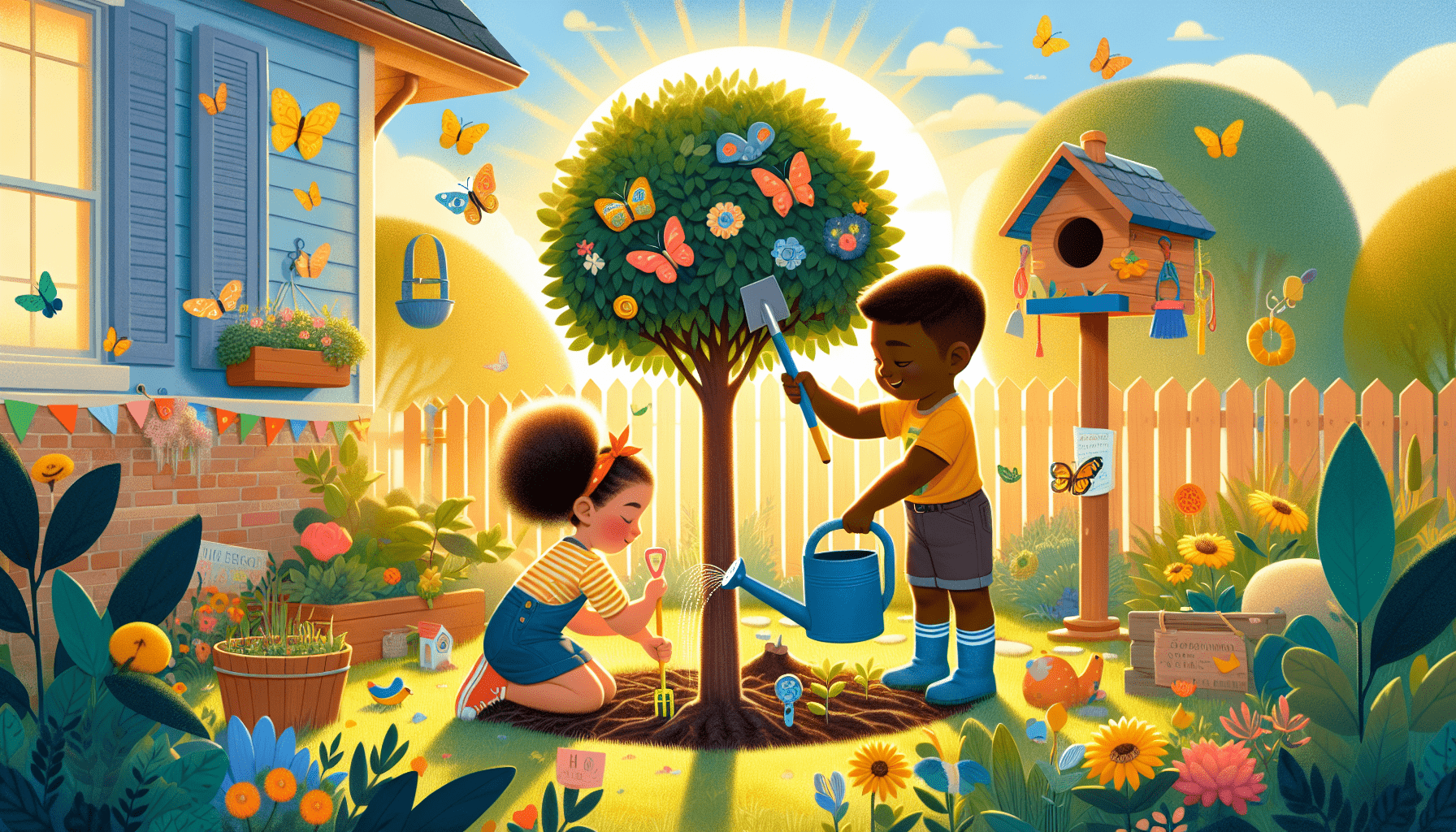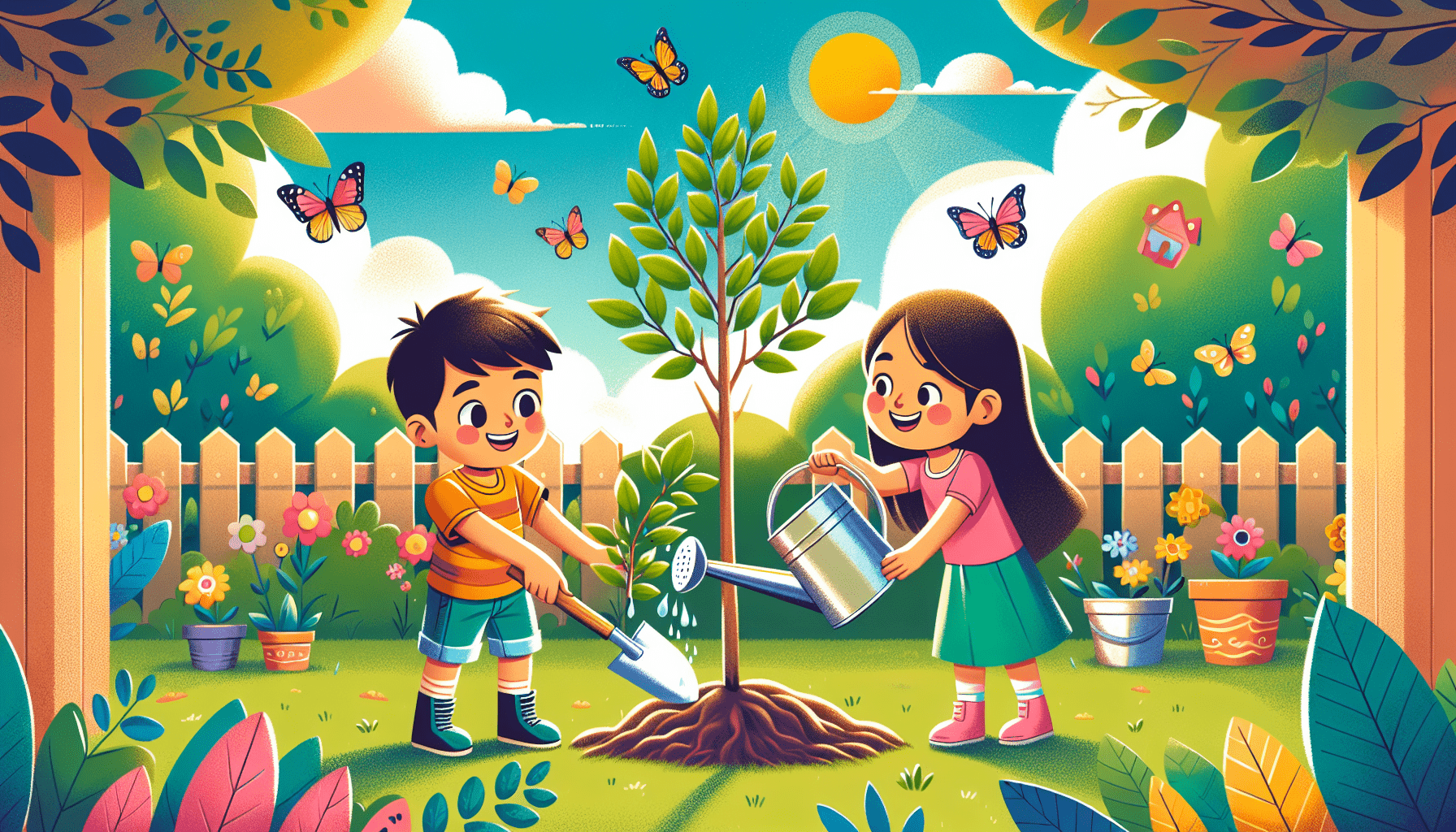Hey there! In our journey as parents, one of the most impactful gifts we can give to our children is a deep understanding of sustainability. It’s not just about recycling or turning off the lights—it’s about embracing a mindset that cherishes and protects our planet for future generations. Together, we can inspire our kids to adopt eco-friendly habits through engaging activities, meaningful conversations, and leading by example. From hands-on gardening projects to fun science experiments on renewable energy, we’ll explore a variety of creative ways to make sustainability a natural part of their everyday lives. How can we teach our kids about sustainability? Sustainability is a crucial concept in today’s world, and teaching our children about it is essential for building a more environmentally-conscious future. But where do we start? How can we make this complex subject engaging and accessible for our kids? Let’s explore various ways we can introduce our young ones to sustainability and equip them with the knowledge and habits they need to make a positive impact on the planet.

Understanding Sustainability
What Is Sustainability?
Before we can teach our kids about sustainability, it’s important to understand what it means ourselves. Sustainability focuses on meeting our current needs without compromising the ability of future generations to meet theirs. It encompasses three key areas: environmental health, economic vitality, and social equity. In simpler terms, it’s about finding a balance that ensures our planet remains habitable and prosperous for everyone, now and in the future.
Why Is It Important?
Teaching our children about sustainability is essential because the choices we make today will affect our planet for generations to come. By instilling sustainable habits in our kids, we can help reduce our environmental footprint, preserve resources, and promote social justice. Moreover, children who grow up understanding the importance of sustainability are more likely to become responsible, informed citizens who advocate for positive change.
Getting Started: Simple Concepts
Make It Relatable
One effective way to teach kids about sustainability is to start with concepts they can relate to. For example, explain how leaving lights on wastes energy or how too much plastic garbage can harm ocean animals. Simple examples like these can help children grasp the larger concept of sustainability.
Use Everyday Activities
Everyday activities offer numerous opportunities to teach our kids about sustainability. From recycling to gardening, we can incorporate lessons about environmental responsibility into our daily routines. Let’s break down some common activities and see how we can make them educational.
Activity Table
| Activity | Lesson to Teach |
|---|---|
| Recycling | Sorting materials into appropriate bins and understanding recyclability |
| Gardening | Learning about plant growth, composting, and the benefits of local food |
| Cooking | Discussing food waste, the importance of organic produce, and sustainable eating choices |
| Energy Use | Turning off lights when not in use, understanding renewable energy sources |
| Water Usage | Conserving water by taking shorter showers and fixing leaks |
Making Learning Fun
Educational Games
Games can be a great way to teach kids about sustainability while keeping them engaged. Board games like “Eco-opoly” or computer games that focus on environmental themes can make learning about sustainability exciting. Additionally, you can create simple games at home, like a scavenger hunt for recyclable items or a quiz on energy-saving tips.
Storytelling
Stories have a powerful way of conveying complex ideas in a way that is easy to understand. Reading books about sustainability or telling stories about eco-friendly superheroes can inspire children. Books like “The Lorax” by Dr. Seuss or “Do Princesses Wear Hiking Boots?” by Carmela LaVigna Coyle effectively emphasize environmental consciousness.
Hands-on Projects
Kids learn best by doing, so hands-on projects are an excellent way to teach sustainability. Activities like building a birdhouse from reclaimed wood, creating crafts from recycled materials, or starting a small compost bin can be both fun and educational. These projects allow children to see the tangible results of their efforts and understand the impact of their actions.
Schools and Sustainability
Integrating Sustainability into Curriculum
Many schools are beginning to integrate sustainability into their curricula. Subjects like science, geography, and social studies offer natural opportunities to discuss environmental issues. Talk to your child’s teachers about how they can incorporate sustainability topics into their lessons. Some schools even have special programs focused on sustainability, such as eco-clubs or green initiatives.
Encourage School Participation
Encouraging your child to participate in school sustainability projects can enhance their learning. Many schools have programs like recycling drives, community gardens, or energy-saving challenges. These initiatives not only teach students about sustainability but also foster a sense of community and teamwork.

Community Involvement
Local Events and Programs
Our communities often offer various events and programs centered around sustainability. Participating in community cleanups, tree-planting events, or workshops on sustainable living can be a great way to teach kids about environmental responsibility. These activities provide hands-on learning experiences and show children the importance of collective action.
Volunteer Work
Volunteering for environmental organizations can also be a valuable educational experience. Whether it’s helping maintain a local park, participating in a river clean-up, or joining a conservation project, volunteering teaches kids about the importance of giving back and working together to protect our planet.
Everyday Habits at Home
Reduce, Reuse, Recycle
The classic mantra of sustainability—reduce, reuse, recycle—is a fantastic place to start. Teach your kids to think about how they can reduce waste, reuse items, and recycle properly. For example, encourage them to use both sides of a piece of paper, repurpose old toys, or sort recyclables correctly.
Energy Conservation
Simple habits like turning off lights, unplugging devices when not in use, and using energy-efficient appliances can make a significant difference. Explain to your kids why conserving energy is important and involve them in making energy-saving choices. You can even create a family challenge to see who can come up with the best energy-saving ideas.
Water Conservation
Similarly, instilling water-saving habits in your children is crucial. Teach them to turn off the tap while brushing their teeth, take shorter showers, and use a broom instead of a hose to clean driveways. Small actions can add up to significant water savings over time.
Sustainable Shopping
Choosing Eco-Friendly Products
When shopping with your children, point out eco-friendly products and explain why you choose them. Look for items made from recycled materials, organic produce, and sustainably-sourced goods. Teaching kids to read labels and make informed choices helps them understand the impact of their purchasing decisions.
Supporting Local Businesses
Buying from local businesses supports the local economy and reduces the environmental impact associated with transporting goods over long distances. Encouraging your children to shop locally and understand the benefits of doing so fosters a sense of community and environmental responsibility.
Communicating the Bigger Picture
Explaining Environmental Issues
While it’s important to keep lessons age-appropriate, don’t shy away from discussing the bigger picture. Explain how our actions affect the environment and why it’s important to make sustainable choices. Use current events, such as news about climate change or deforestation, to illustrate these points.
Encouraging Critical Thinking
Encourage your children to think critically about environmental issues and come up with their own solutions. Ask questions like, “How can we reduce our plastic use?” or “What can we do to help endangered animals?” Fostering a problem-solving mindset will empower them to take actionable steps toward sustainability.
Leading by Example
Practice What We Preach
One of the most effective ways to teach our kids about sustainability is to lead by example. If we prioritize eco-friendly practices in our own lives, our children are likely to follow suit. Make sustainable choices and explain the reasons behind them so that your kids can see the importance of these actions.
Create Family Goals
Setting family sustainability goals can be a fun and rewarding way to work together towards a common objective. Whether it’s reducing energy consumption, cutting down on waste, or starting a home garden, having shared goals fosters a sense of teamwork and accountability.
Celebrating Progress
Recognize Achievements
Positive reinforcement goes a long way in teaching kids about sustainability. Recognize and celebrate their efforts, whether it’s remembering to turn off the lights or helping with the recycling. Positive feedback reinforces good habits and motivates kids to keep up their eco-friendly efforts.
Track Progress
Create a chart or journal to track your family’s sustainability progress. Recording actions, such as the amount of waste reduced or energy saved, helps visualize the impact of your efforts. This tangible evidence can be very encouraging and reinforce the importance of sustainability.
Conclusion
Teaching our kids about sustainability doesn’t have to be a daunting task. By integrating small lessons and habits into our daily lives, we can make a significant impact. Whether through relatable concepts, fun activities, school participation, or community involvement, there are plenty of ways to engage our children in sustainable practices. Remember, every small step counts, and by instilling these values in the next generation, we are securing a brighter, more sustainable future for all. Let’s embark on this journey together and inspire our children to become the eco-conscious leaders of tomorrow.



